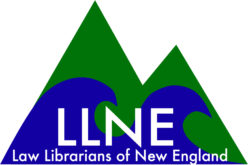By Artie Berns
I recently attended the ABA Techshow in Chicago. The following are some of the highlights:
Prior to the actual event I attended a Dean’s Roundtable event, Teaching Technology in the Academy: Are We Finally at the Tipping Point. This event was hosted by Chicago Kent School of law and included a lively panel discussion about the modes and methods of teaching technology in the legal academy. For me, the main take-away was that while we in the legal academy can theorize about what we should be teaching with regard to technology, a better indicator of what is needed is what the firms hiring our students want them to know when they arrive. This event will be evolving into an actual academic track in next year’s Techshow. For more information about the upcoming academic track contact Michael Robak, robakm@umkc.edu.
More than one program I attended discussed the impact of expert systems on the practice of law. In this context an expert system is one in which a computer conducts guided interviews to solve a particular legal problem, for instance in the program How to Hire a Robot – or Using Experts Systems in Today’s Law Firm an expert system was designed on the spot which would allow an end user to determine if they can obtain a divorce or annulment under Illinois law. Other expert systems are used to provide services for pro se litigants, for example Illinois Legal Aid Online (www.illinoislegalaidonline.org) uses A2J Author (http://www.a2jauthor.org) to help self-represented litigants to create legal forms for common legal problems. Here in New England, the Massachusetts-based Committee for Public Counsel Services (https://www.publiccounsel.net/) uses QnA Markup (http://www.qnamarkup.org/) to help guide people to various legal resources. In the long term it is thought expert systems will be used for the automation of boring or repetitive tasks which will allow attorneys to spend their time addressing more complex and thought intensive tasks.
Several programs taught attendees to maximize the use of existing technologies such as Word, Excel, and Acrobat Pro. Another very interesting program discussed the deep/dark web and how to conduct research there and why you would want to. I discussed this program on the my law library’s blog, Spot-on Legal Research (http://wnelawlibrary.blogspot.com/2016/03/below-surface-web.html). All told, I walked away from the ABA Techshow with a much better idea about what technologies we should be teaching to law students both today and in the future.
